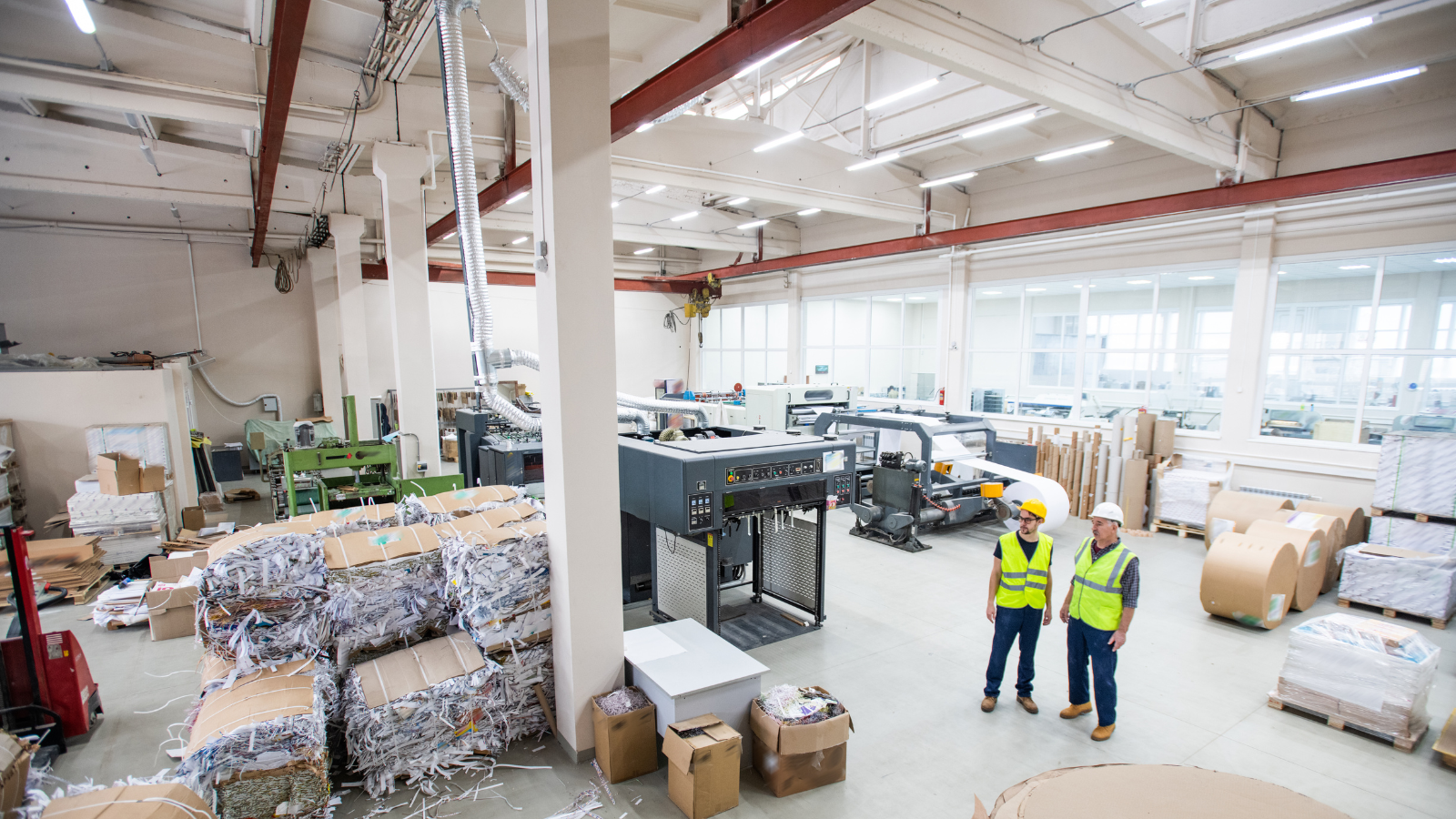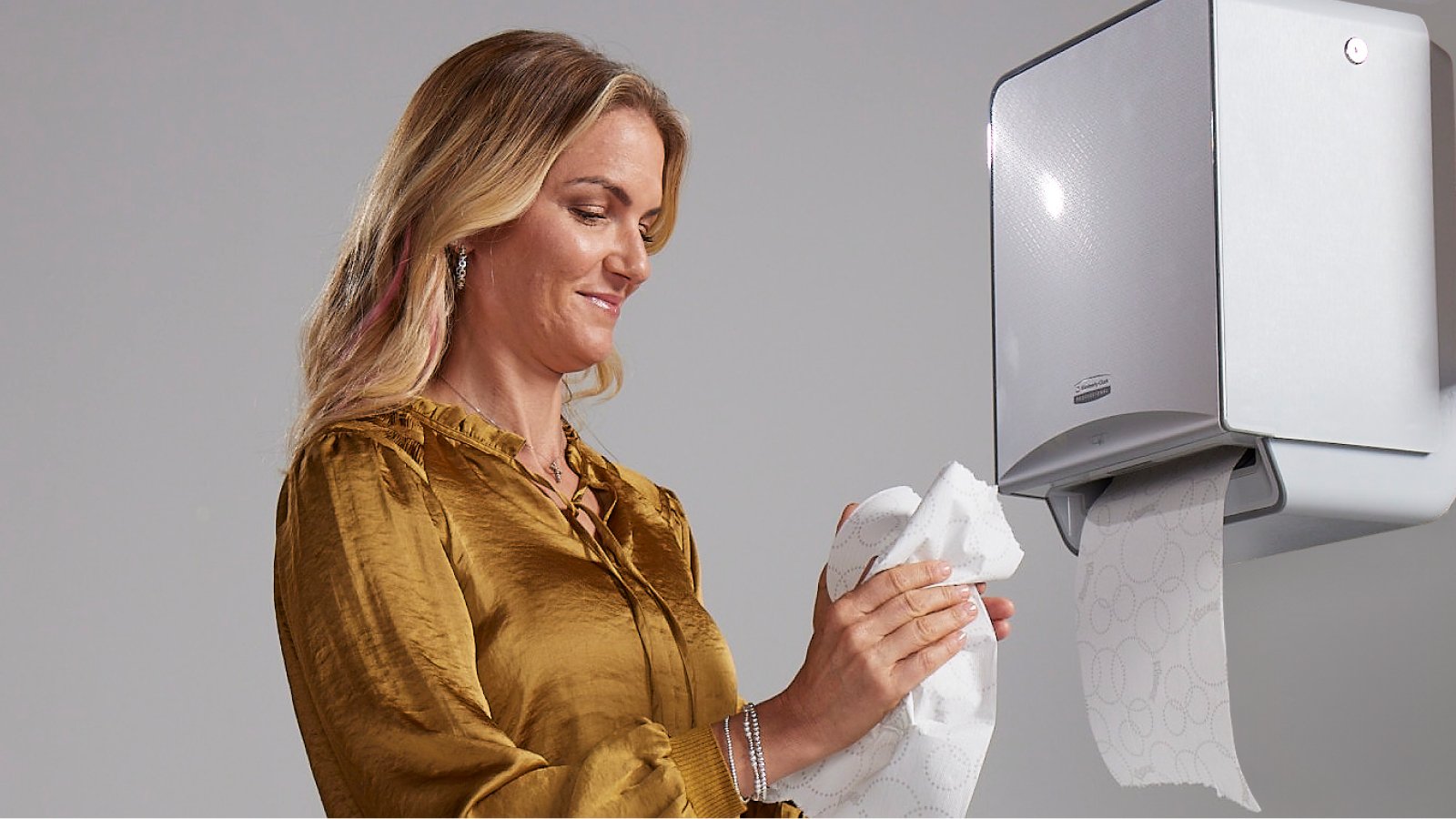Last Updated APRIL 2025
Sustainability has become crucial for healthcare organisations as they look at protecting patients and the planet
In an era characterised by growing environmental challenges and the imperative to tackle climate change, sustainability has emerged as a critical consideration across various sectors. Many healthcare organisations have recognised the intrinsic link between protecting the environment, patient care, and organisational success. For many, sustainability and operational efficiency means long-term financial viability and high-quality patient care.

Energy use accounts for the largest proportion of the impact of healthcare facilities. In fact, the healthcare sector is responsible for around 5% of the world’s greenhouse gas emissions.1
Kimberly-Clark Professional’s full range of controlled dispensing systems can help to control costs and reduce energy consumption across washrooms. We know paper towels are a must when it comes to infection control. But they must be sourced and used responsibly. The ICON™ Hand Towel Dispenser, for instance, allows organisations to cut their consumption by up to a third versus the leading competitor folded hand towel dispenser.2 The Kleenex® Rolled Hand Towels designed for the ICON™ Dispenser use up to 33% less paper per hand dry than the competition.2
Eliminating waste and improving recycling are also crucial considerations for hospital administrators, clinical staff, and department heads. Globally, hospitals create five million tonnes of waste a year – much of which is single-use plastics, including syringes, gowns, and gloves.3 Effective waste management can return significant operational cost reductions, enabling healthcare bodies to allocate more resources towards patient care. Hospitals can reduce their waste by implementing recycling programmes for materials such as paper, plastics, and medical equipment, as well as by reducing their use of disposable products.
Kimberly-Clark Professional's hand towel recycling service, The RightCycle™ Programme, collects used hand towels and transforms them into new paper-based products. The used towels are stored separately at the client´s facility, collected, then processed. The programme has already help recycle over 400 tonnes of single-use materials so far and helped customers reduce waste by up to 25% and increase recycling rates by up to 5%. 4
Elsewhere, water conservation measures, through the implementation of water-efficient fixtures and appliances, can further reduce costs. Also, the way buildings are designed can have a big impact not only on energy efficiency performance, but also on patient wellbeing. When washrooms are located near to hospital wards where people need calm and quiet to help them recuperate, the ICON™ Dispenser Technology is perfect as it is 85% quieter than the leading competitor products.
It is increasingly important for healthcare organisations to procure their goods and services from partners that share their approach to sustainability, especially medical equipment, or more sustainable cleaning supplies.
Kimberly-Clark Professional™ is proud to continue innovating new products and services that provide the healthcare sector with the opportunity to effect change, particularly when it comes to protecting the planet. For example, our FSC® and Ecolabel certified Scott® Essential™ Rolled Hand Towels are made with Airflex™ Technology which uses up to 17% less fibre and allows high compressibility without reducing hand feel or drying performance. This results in less waste as fewer towels are required per hand dry. And the compression technology achieves an 18% reduction in storage and transportation too.
Kimberly-Clark Professional’s Scott® Control™ Twin Centrefeed Toilet Tissue also boasts a range of sustainable attributes. Its roll packaging is made with 30% recycled content and is 100% recyclable. We have also managed to reduce storage volumes and truck delivery space requirements six-fold.
Meanwhile, the Scott® Control™ Foam Hand Cleanser, which offers controlled dispensing to reduce waste, offers twice as many washes per litre than liquid soap. It rinses off quicker than traditional soap, using 56% less water. The dispensers also include fully recyclable cassettes which are Ecolabel certified.5
As trusted stewards of health and well-being, healthcare organisations have a real opportunity and responsibility to integrate sustainability into how they run their facilities. By embracing sustainability, they can forge a path towards a healthier, more equitable, and sustainable future, demonstrating a commitment not only to patients but to the planet.
1. https://www.healthpolicypartnership.com/the-nexus-between-climate-change-and-healthcare
2. Results of the Hall Test conducted by Sapio agency, July 2021
3. https://www.aamc.org/news/hospitals-race-save-patients-and-planet
4. Based on UK offices per person average kilogramme of waste
5. Ann Durrant and Alexandra McKay, Media4Change Ltd



















